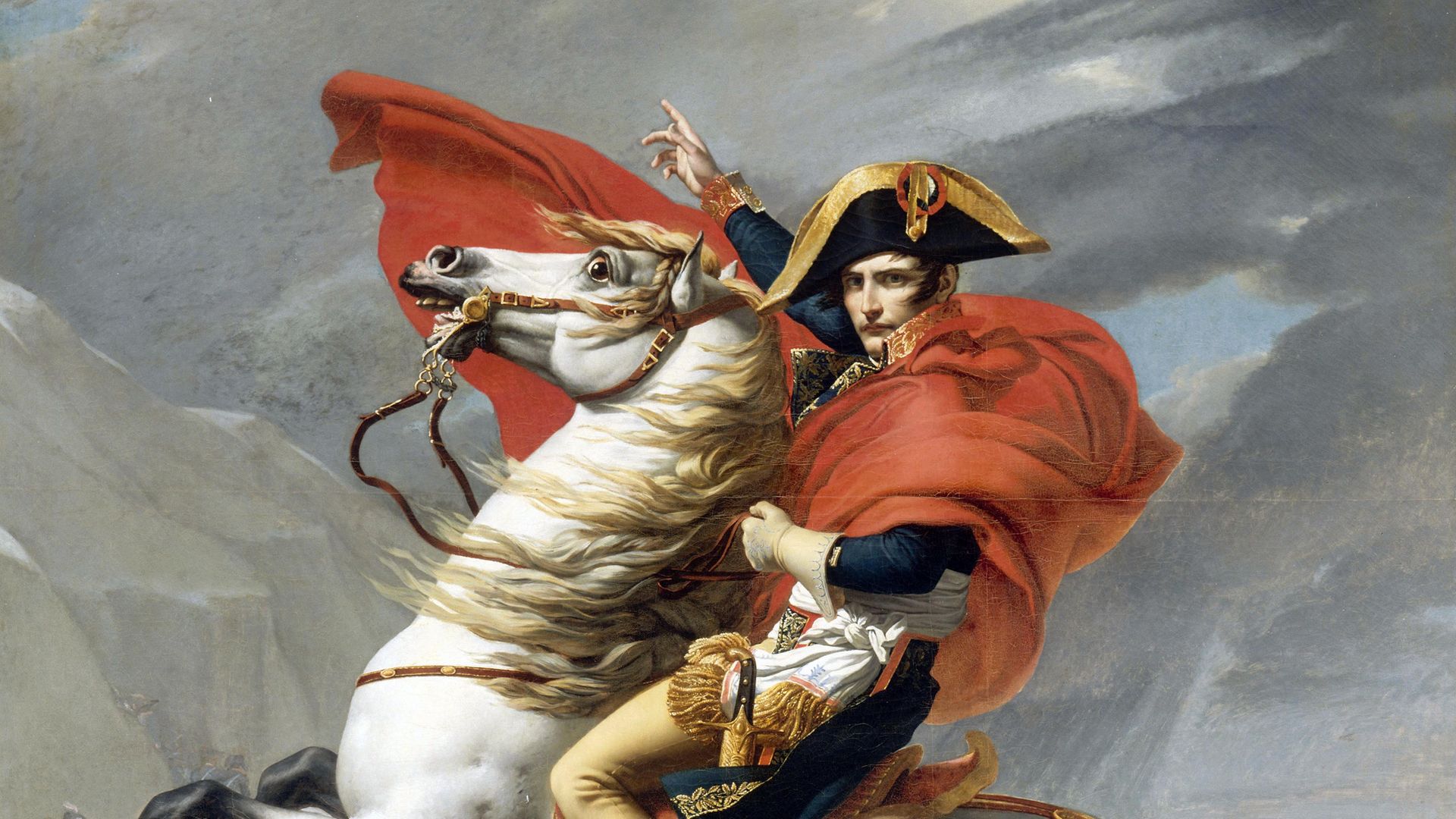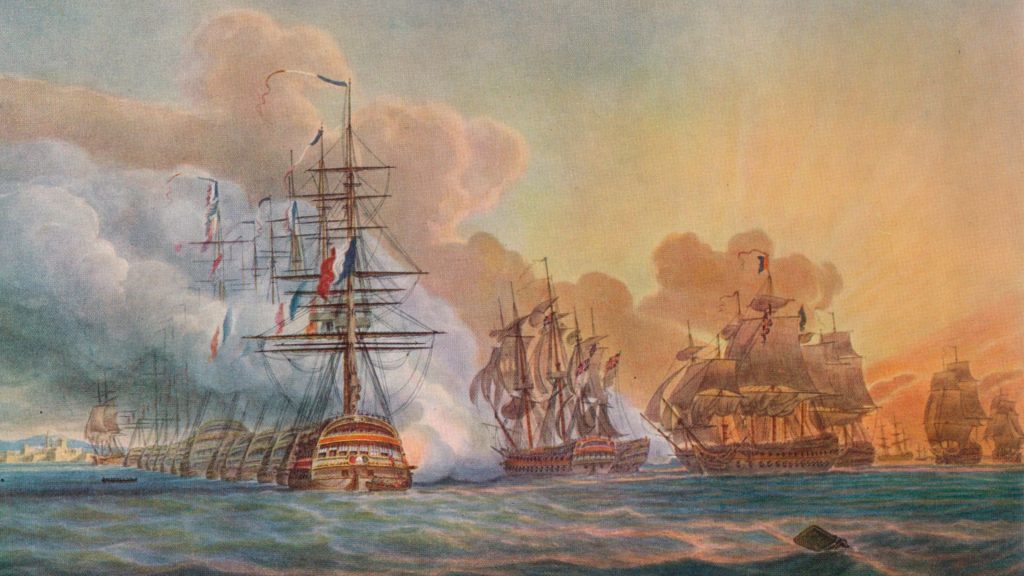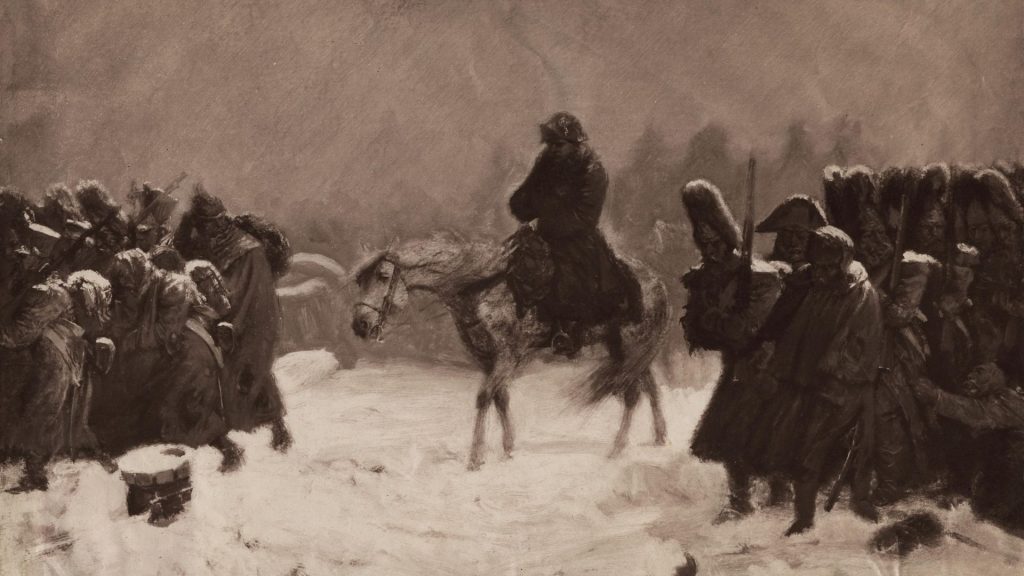
Napoleon’s role in shaping the continent we know today makes him a subject of fascination across Europe. So, on the bicentenary of the emperor’s death, why does he not occupy a central place in the French psyche?
A Frenchman must necessarily be arrogant. For he can be nothing other than the heir of Napoleon Bonaparte. His commitment to the European cause is merely cover for a dream, which is to fashion once again the continental empire of Napoleon the First, from Lubeck to the Illyrian provinces, from Brest to Naples; in short to build a Europe under the influence of France.
When I arrived in Brussels, in 1992, with the job of covering the next phase of European integration after the Maastricht treaty, I did not expect the above cliché to have wormed its way into the collective imagination of my fellow Europeans.
It was in Brussels that I discovered that Germans rated France as a ‘Great Nation’, a term I was unfamiliar with, which was deployed to describe our national arrogance. Nor was I aware that the press would stick a cocked hat on every French president. Nor for that matter that the Spanish would reproach us for the ‘Second of May’ (the 1808 Madrid uprising) or the ‘Third of May’ (the French massacre, the following day); that the Dutch still hadn’t digested their annexation; that the financial exactions by Napoleon still stuck in the craw of Portugal; still less that the British, in spite of an alliance going back more than a century, forged in iron and blood, could carry on judging French politics by the yardstick of the First Empire.
My surprise was all the greater because Napoleon’s adventure – brief and more than two centuries old – does not occupy a central place in the French psyche. At any rate, it occupies less space, say, than the Wars of Religion, Louis XIV, the Third Republic, the defeat of June 1940, Vichy collaboration during Nazi occupation, or even Charles de Gaulle. But, clearly, Napoleon remains a European obsession, as demonstrated by this article commissioned by a British newspaper, albeit one with a European name!

With good reason, albeit not for the reasons one might imagine. Because Napoleon’s legacy is to have fused the principle of nationalities into a European order, something which would eventually lead to the suicide of the old continent. This is what ‘the construction of Europe’ in the post-Second World War era desperately seeks to overcome without ever quite managing to do so.
The French government long hesitated before going ahead with celebrations to mark the bicentennial of Napoleon’s death – on May 5 on the British-held island of St Helena. This very fact shows the degree to which a certain page in French history arouses more discomfort at this hour of repentance and political correctness, than any pure expression of joy.
It is worth remembering that Jacques Chirac, on December 2, 2005, renounced any celebration of the battle of Austerlitz, one of Napoleon’s greatest victories, of which France has nothing to be ashamed. But he did dispatch the aircraft carrier Charles de Gaulle to Portsmouth, where it took part in the commemoration of the battle of Trafalgar, one of France’s greatest defeats, (curiously celebrated on June 28 rather than October 21).
In fact, France started critical work on that period of 15 years when the ‘Little Corporal’ was in power a long time ago, indeed going back to the fall of ‘the ogre’ in 1815 – even it is also true that the romantic movement, which made him a hero, has long featured in the national consciousness.
As Chateaubriand said in his Memoirs Beyond the Grave: “to fall back from Bonaparte and the Empire to what followed is to fall from reality into the void, from the summit of the mountain into a chasm.”
The memory of Napoleon haunted French political life throughout the 19th century, just as much as it stamped the authority of the state, via the Civil Code, the establishment of the Bank of France, the Council of State, the prefects, his own organisation and his university system.
On May 5, 1921, almost three years after the end of the First World War, the state organised a magnificent ceremony to mark the centenary of his death. In his “eulogy to Napoleon”, Marshal Foch buried forever the great man by highlighting the degree to which he had been a catastrophe in his own time and for centuries to come.
For sure, “he remains… the great captain, superior to all others thanks to his prodigious genius, his restless spirit, his passionate character just as much as his hot-
headedness which will always seize the spoils of war but at the highest cost when it comes to peace and stability.”
Because, the victor of 1918 continued, “by assimilating the greatness of a nation with one’s own, he wished to settle the fate of nations through armed struggle, as if one could make the happiness of his own people dependent on an everlasting cycle of military victories and painful sacrifice. As if this nation could live on glory and not on labour!
“As if the defeated nations, having attained their independence, would not at some point rise up to reconquer their territory, to put an end to the occupation, to summon up their own armies, swollen in number and made invincible by their sense of righteous outrage.
“As if in a civilised world, morality could not be greater than a power which relied on force alone, however awesome that force might be. For sure, all of us have a common duty: beyond being in charge of a victorious army, one has to serve their country in the pursuit of its happiness as it sees it. That is to say, justice which is respected everywhere; beyond war, there is peace!
“For sure, even the most talented man will go astray if he looks only to his own views and his own lights when settling the affairs of humankind. He will set himself apart from society’s moral law, respect for the individual, the principles of freedom, equality and fraternity, the foundations of our civilisation based on the Christian faith.”
The eulogy had turned into a polemic. In a few words, Marshal Foch highlighted Napoleon’s march of folly which gave birth to nationalism in Europe to the detriment of
the old order. France, utterly preoccupied with war, missed the first industrial revolution which liberalism alone could usher in because it was hostile to individual power. For a long time this failure held back France much more than the defeat at Waterloo.
It was Napoleon who laid the ground for Prussia to hijack, within a few decades, the German-speaking peoples who up until then had been divided into multiple principalities and states. And then to unify them in one German state, to the misfortune of Europe.
During captivity on St Helena, he tried, like the propaganda king he was, to rewrite history by claiming that this result, the multiplication of nation states, was the fruit of his conscious action, whereas it was merely the result of his brutal conquest of Europe.

In his words: “One of my greatest thoughts had been agglomeration, the concentration of the same geographically placed peoples who have dissolved and parcelled out revolutions and politics. In Europe, one counts 30m French, 15m Spanish, 15m Italians, 30m Germans. I would have wanted to make each of these people one and the same body of the nation.”
Lionel Jospin, the former socialist prime minister (1997-2002) wrote in his violent polemic (The Napoleonic Evil which was published by Seuil in 2014) his views of “the European project” of the Emperor: “In the last resort, and whatever the means employed – annexation, subjugation and intimidation – France did not possess the power to unify Europe under its yoke in a durable fashion.
“Might it have been able to be an inspirational force, even an arbitrator? Most certainly. But this was not the ambition nor the nature of the Emperor: Napoleon did not support the transformational forces which existed throughout Europe, to different degrees. Nor did he pursue realistic goals which were capable of being tolerated by the other powers and which might have been rendered permanent. He mustered simultaneously the forces of change and conservatism against him, in the end to the advantage of the latter.”
But Napoleon’s reign did not only upset the status quo in Europe, as Lionel Jospin claims, he changed it profoundly. The restoration orchestrated by Metternich, who was desperate to return to the old order, would only last a brief period of time. For the Napoleonic Wars “were the most powerful factor in social and political change between the Reformation and the First World War,” as the American historian Alexander Mikaberidze rightly argues (in the review Guerres et Histoire, February 2021).
“The (wars) changed the course of whole regions and pushed them in new directions. They destroyed traditional ways of life and the legitimacy of institutions such as the monarchy, aristocracy and slavery. They transformed fundamentally the nature of political sovereignty… These conflicts provoked the European states to begin a painful process of reform and modernisation which went on to change the balance of power between various parts of the world… This was a crucial moment in the creation of the modern world.”
Napoleon was prescient enough once in exile in the South Atlantic to anticipate the European Community: “Was it perhaps allowed to dream that the model of the US Congress or the Amphictyons of ancient Greece would be applied to the great European family… this collection of disparate elements would happen sooner or later in the natural course of history; the trigger was a given and I don’t think that, after my downfall, there are other possible forms of equilibrium other than a coming together and confederation of the great nationalities/peoples.”
But, what was not anticipated was that it would take 150 years and a succession of wars leading to a violent crescendo for the states of the old continent, exhausted by the toll of death and destruction, to agree to such an outcome.
Europeans’ fascination for Napoleon is therefore understandable since they owe him so much. And not only on account of the wars which enabled the triumph of nationalities.
For Bonaparte was an outstanding organiser who, aged 30, fashioned modern France but also reformed the judicial and administrative structures down to the last detail in the occupied territories – the Dutch, for example, owe their civil state to him.
It is no accident that the personality of Napoleon, in contrast to modern tyrants, remains a subject of admiration. As the 18th century counsellor of state Pierre-Louis Roederer wrote: “Something extraordinary happened among the men who worked for him: mediocrity felt like talent, talent believed it had descended into mediocrity. As much as he inspired the former, so too he confounded the latter.”
There are two sides of Napoleon, one of light, the other darkness and that is the reason his personality has nothing in common with the absolute evil incarnate of Adolf Hitler.
Certainly, his reign was marked by wars which he did not always seek, considering that the Europe’s monarchies wanted to throttle the French Revolution which he embodied (for example, the UK breached the peace treaty of Amiens in 1803). The ledger is bloody but to turn Napoleon into an ‘ogre’ is to get ahead of oneself.
The man was a creature of his time when human life counted for little. Let’s just remember the genocide committed by the Spanish in America, but also the English for the slave trade or on our own continent, the Seven Years War (1757-63) or the Thirty Years War (1618-48) in which Gustavus Adolphus II of Sweden notably ‘starred’ and which cost five to eight million inhabitants of the German part of the Holy Roman Empire, up to 20% of its population (compared to 6% in the Second World War).
What always fascinated me in Brussels was the way in which Berlin enjoyed historical ‘immunity’, none daring to draw the slightest parallel between modern Germany and Nazism (with the exception of the British tabloid press, of course). That is not the case with the French who get the Napoleonic Wars, of which they generally know little, thrown back in their face without a second thought.
The Germans are not the last ones to engage in the ‘blame game’. The difference is surely down to the admiration mixed with repulsion which continues to mark Napoleon Bonaparte who was not just a brutal conqueror the likes of Adolf Hitler or William II.
The French are all the more taken aback by this obsession with Napoleon as the memory of the Emperor has largely faded and it would not occur to anyone to lay claim again to his heritage. Certainly, the Bonapartist temptation infected France in the 19th century and a certain taste for the man of providence is still present in the hexagonal imagination, with the institutions of the Fifth Republic being its best reflection.
Yet neither de Gaulle nor Macron, two figures sometimes associated with Bonapartism, one because of the conditions in which he returned to power and his own conviction which came to embody France, the other essentially because of his youth and meteoric career, intended to seize power for their own gain.
At heart, rather than 15 years of Bonapartism, is it not the long history of monarchy and the tragic end of Louis XVI brought about by a small minority which explains France’s fascination with the face of executive power?
It is worth remembering too that the Napoleonic epic is not really taught in French secondary school, with the curriculum concentrating on the French Revolution until 1795 before it leaps forward directly to the First World War. That is mainly because the French left, which holds sway in the educational establishment, believes that Napoleon Bonaparte was responsible for extinguishing the Revolution, which is historically false.
In fact, many French people are virtually ignorant when it comes to the story of Napoleon beyond a few enthusiasts. While France is full of names of marshals of the Empire, of battles and Napoleonic monuments, Napoleon himself is nowhere to be found. Neither shame, nor pride. Simply the forgotten man.
Jean Quatremer is the European correspondent of Libération









